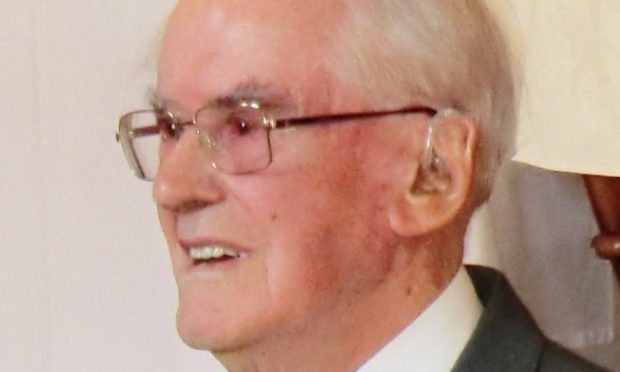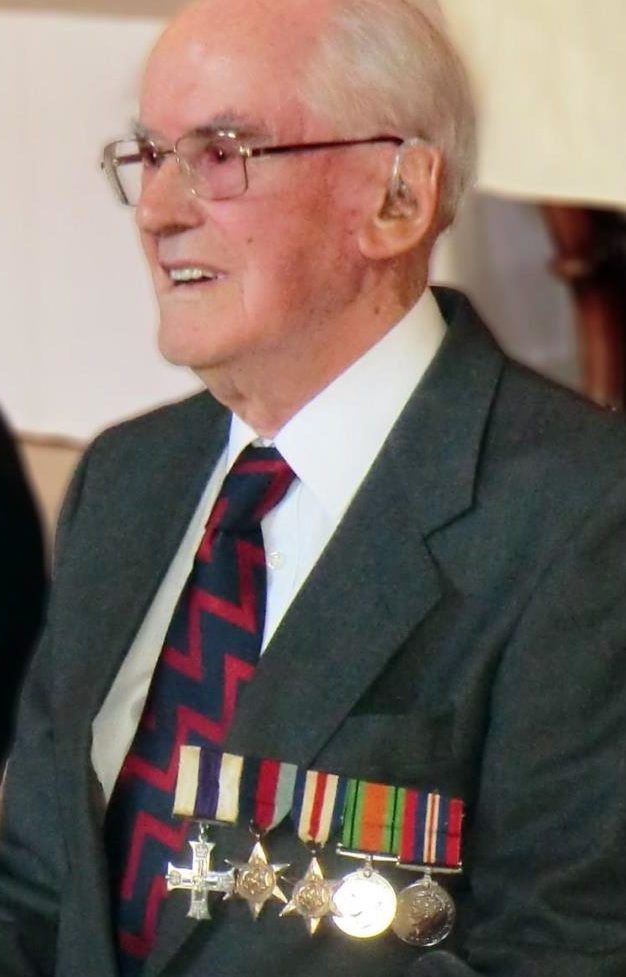William McCulloch, who was awarded a Military Cross during the Allied advance on the Rhine, and went on to become chief executive of Angus District Council, has died aged 99.
Mr McCulloch had a lifelong association with local government. He started work with Dundee Corporation in 1937, assisted with the rebuilding of local government structures in Germany at the end of the war, then returned to serve in local authorities in Dundee and then Angus.
He was a past president of Forfar Golf Club, an amateur dramatic society member, a historian and bridge player. As a senior council official he witnessed, and then met, Gary Player win the Open at Carnoustie in 1968.
In 2018, on what was to become his last outing from Forfar, William was invited by the French consul in Edinburgh to be invested with Legion d’honneur, the highest award of France, and the right to the title chevalier.
Chevalier William Scott McCulloch was born in Lochee to Willie and Margaret McCulloch.
Willie was a veteran of the First World War, having served with the Royal Horse Artillery, riding with the guns to the front of battle.
William was the elder of two sons and did well at Harris Academy Dundee, but left aged 14 to help with the family finances, his father having been sacked from the mill he worked at for being a leading Lochee liberal.
In 1937, he was recruited into Dundee Corporation to work in the office of the town clerk, the start of 50 years’ service to local government.
It was in this pre-war period that he met Jean Hughes who also worked in the corporation and who was to become the love of his life and his wife of 66 years.
In 1942, he was awarded his Bachelor of Law degree from St Andrews University, having been sponsored by the corporation, and was immediately recruited from the university officer training corps into the same regiment as his father, the Royal Horse Artillery.
In 1944, he joined Jerboa Battery, new in from North Africa and crossed the Channel on D-Day plus four, atop a lorry in a landing craft heading for Juno Beach.
Subsequently, he was attached to the King’s Royal Rifle Corps, fighting with the Canadians on the advance to the Rhine when he was awarded the Military Cross for bravery and leadership under shell, mortar and Nebelwerfer fire.
Shortly afterwards, he was given a field promotion to the rank of captain. As the war ended, he was assigned to assist with the rebuilding of the German local government structure, helping the country return to some semblance of normality.
After the war, William returned to local government in Dundee and continued his courtship with Jean. By the rules of the time, Jean and William could not both work with the council and Jean was forced to resign. They married on December 20, 1947.
They went on to have three sons between 1950 and 1955, and in 1956, at the age of 34 William left Dundee to take up the position of town clerk in Forfar. He would serve the authority successively as depute county clerk and chief executive for its successor bodies for the next 31 years.
William was held in high esteem and admired by his colleagues for his tact and diplomacy, as councillors with party affiliations replaced independents.
As much as his duties would allow, William was a full participant in the social activities in Forfar but in those days of voluntary councillors, most of his evenings were taken up with attending council meetings.
This did not stop him being active member in amateur dramatics, bridge, historical studies, badminton and golf.
In 1965, William brought his diplomatic and administration skills from the council to his amateur dramatics and became the unseen coordinator for Farfar will be Farfar Still, the town pageant celebrating the tercentenary of its Royal Charter.
It was inevitable that he would be persuaded to assist in the running of some of the clubs, including being honoured to be elected president of Forfar Golf Club, but it was in his role of assistant chief executive of Angus that put him in the hotel dining room of on the last day of the Open in 1968, where he met the champion Gary Player.
Holidays between 1961 and 1972 were adventurous. He took his family by road from Forfar to camping sites all over Europe, from Spain to Tito’s Yugoslavia.
William retired from local government in 1987.
Both he and Jean were able bridge players, playing at tables around Scotland and on several cruises, combining their sport with tourism. William also developed his interest in local history, writing several booklets.
Jean suffered from dementia for a long number of years and William attended to her until her death in July 2013 at the age of 90, after 66 years of marriage. The loss was assuaged by the arrival in November of that year of his first great-grandchild, who was followed by a further three over the next four years, giving William a new lease of life and the chance to travel to London and Yorkshire in his early 90s.
William died at Abbey House, Kinnordy, on June 8, 2021.
He is survived by three sons, three granddaughters and four great-grandchildren.

